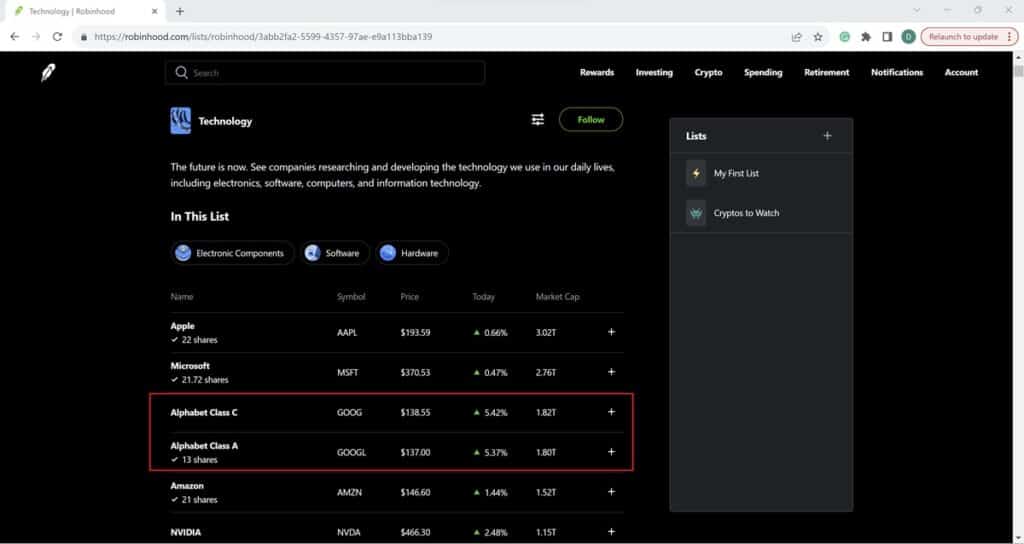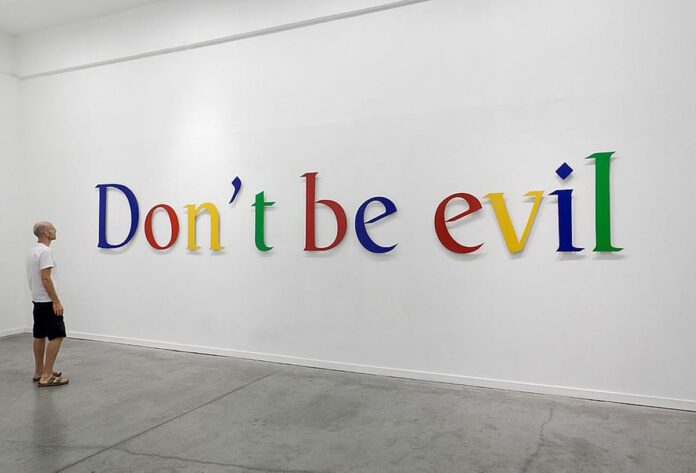Since the vast majority of Google’s revenue is pulled from advertising, many people refuse to acknowledge Google as a technology company. Instead, they happily label Google as an advertising company. On the other hand, Google fans call off these people as delusional and will proudly present Google as a technology company.
But who’s right? Is Google a technology company or an advertising company? Can they be both wrong, or can they be both right? Let’s see…
First off, the market categorizes Google (alphabet) as a technology company. You will not see Google under the pharma, automotive, or banking sector.

Additionally, by intrinsic value, a tech company is defined as one that manufactures, supports, and performs research and developments on technology-intensive products and services.
While Google does not manufacture any products themselves, the tech giant supports and does a ton of research and development for different tech products and services. The company spent $39.5 billion last year (2022) on research and development across the 73 products that they offer.
These are the most known and most highly complex Google products when it comes to research and development:
- Android OS (operating systems are complicated to create, even for large companies)
- Google Search (crawling and indexing the web is a complex task)
- Bard
- Chrome
- Google Maps
- Google Play
- Nest
- YouTube (serving a billion videos is expensive and difficult)
So, is Google a tech company? The answer is yes. Google classifies as a strictly tech company from any angle you look at it. Even while they make the vast majority of their profits from ad revenue, this does not invalidate Google as a tech company.
Categorizing a company based on its source of revenue instead of what it produces would be foolish. If we go by that logic, then most home and car insurance companies would not even be considered insurance companies; they would be classified as investment firms.
This is because most insurance companies do not profit directly from premiums. Instead, they invest surplus premiums and profit out of investments.
